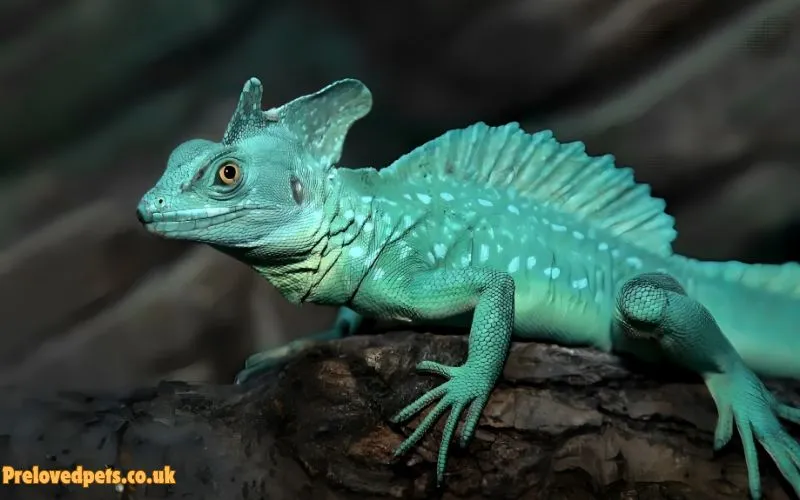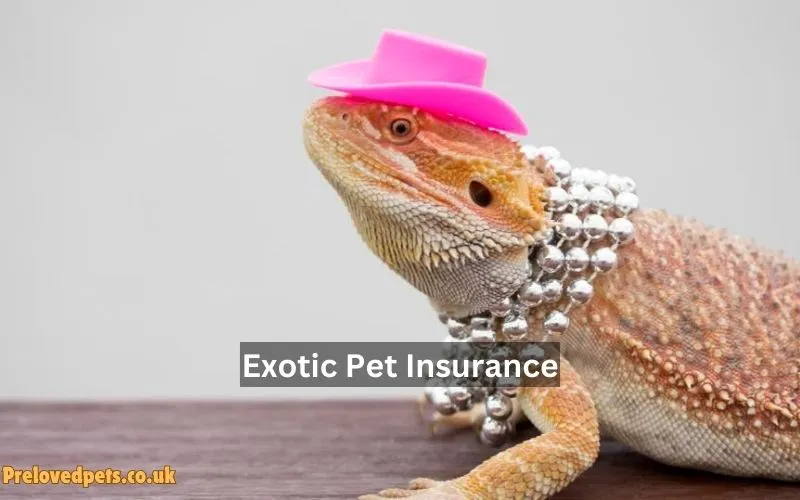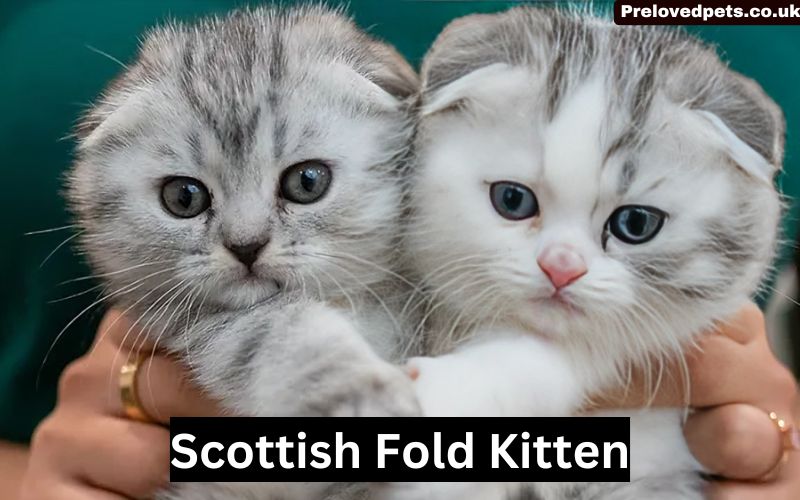As the popularity of exotic pets continues to rise, an increasing number of people are opting for unique and unconventional animals as companions. From reptiles and birds to small mammals and amphibians, exotic pets bring joy, fascination, and a touch of the extraordinary into our lives. However, owning these animals also comes with unique challenges and responsibilities, especially in terms of healthcare. This is where exotic pet insurance becomes essential. This comprehensive guide will delve into the details of exotic pet insurance, its benefits, coverage options, considerations, and the top providers.
The Rise of Exotic Pet Ownership
Exotic pets have gained immense popularity over the past few decades. Whether it’s a colorful parrot, a sleek snake, or a playful ferret, these animals captivate pet owners with their distinct behaviors and appearances. The American Pet Products Association (APPA) reports a steady increase in the ownership of exotic pets, reflecting a shift in preferences towards non-traditional pets.
This growing trend is not just a passing fad. Exotic pets offer a unique companionship experience, often requiring more specialized care and attention than cats and dogs. Their distinct needs can include specific dietary requirements, environmental conditions, and veterinary care, which are all crucial for their well-being. As a result, the concept of exotic pet insurance has become increasingly relevant, providing a safety net for owners who want to ensure the best care for their pets.
What is Exotic Pet Insurance?
Exotic pet insurance is a specialized form of coverage designed to help pet owners manage the costs associated with the healthcare of non-traditional pets. Unlike standard pet insurance, which typically covers cats and dogs, exotic pet insurance is tailored to the specific needs of animals that fall outside these categories.

This type of insurance can cover a wide range of pets, including but not limited to:
- Reptiles: Snakes, lizards, turtles, and tortoises.
- Birds: Parrots, canaries, finches, and other avian species.
- Small Mammals: Ferrets, rabbits, guinea pigs, hedgehogs, and hamsters.
- Amphibians: Frogs, toads, salamanders, and newts.
- Invertebrates: Tarantulas, scorpions, and other exotic insects.
Why Consider Exotic Pet Insurance?
- Specialized Veterinary Care: Exotic pets often require specialized veterinary care, which can be more expensive than standard veterinary services. Many exotic animals need to be seen by veterinarians who have specific training and experience in treating them. These specialists can charge significantly more for their services due to the expertise required.
- Unexpected Medical Costs: Just like cats and dogs, exotic pets can suffer from illnesses, injuries, and chronic conditions that require medical attention. Without insurance, these unexpected expenses can quickly add up, leading to significant financial strain on pet owners. Exotic pet insurance helps mitigate the financial burden of these unforeseen costs.
- Preventive Care: Some exotic pet insurance policies cover preventive care, such as annual check-ups, vaccinations, and routine tests. This can help ensure that your pet stays healthy and any potential issues are caught early. Preventive care is crucial for maintaining the long-term health of exotic pets, as it allows for early detection and treatment of potential health problems.
- Peace of Mind: Knowing that you have a financial safety net in place can provide peace of mind, allowing you to focus on enjoying your time with your exotic pet rather than worrying about potential healthcare costs.
What Does Exotic Pet Insurance Cover?
The coverage options for exotic pet insurance can vary widely depending on the provider and the specific policy. Generally, you can expect coverage for:
- Accidents: Injuries resulting from accidents, such as falls, bites, or burns, are typically covered. This includes emergency treatments and surgeries needed to address the injuries.
- Illnesses: Coverage for a wide range of illnesses, including infections, respiratory issues, digestive problems, and chronic diseases. This can include both acute and long-term conditions.
- Diagnostic Tests: Tests like blood work, X-rays, MRIs, CT scans, and ultrasounds needed to diagnose health problems. Diagnostic testing is often essential for determining the underlying causes of health issues in exotic pets.
- Medications: Prescription medications required to treat covered conditions. This can include antibiotics, pain relievers, anti-inflammatories, and other necessary drugs.
- Surgeries: Coverage for surgeries needed to address injuries or illnesses. This includes both emergency surgeries and planned procedures.
- Hospitalization: Costs associated with hospital stays if your pet needs to be admitted for treatment.
- Specialist Care: If your pet needs to see a specialist for a specific condition, this can also be covered.
Some policies may also offer optional add-ons for things like alternative therapies (such as acupuncture or chiropractic care), behavioral treatments, and dental care. These additional coverages can be beneficial for addressing specific needs and enhancing your pet’s overall quality of life.
Factors to Consider When Choosing a Policy
- Species-Specific Coverage: Ensure that the policy covers your specific type of exotic pet. Some insurers have more comprehensive lists of covered species than others. For example, some policies may cover reptiles and birds but exclude small mammals or invertebrates.
- Coverage Limits: Check the policy for any limits on coverage, such as annual or per-incident caps. Understanding these limits will help you determine whether the policy provides adequate financial protection for your pet’s potential healthcare needs.
- Exclusions: Be aware of any exclusions in the policy, such as pre-existing conditions, certain types of treatments, or specific health issues common to your pet’s species. Carefully review the list of exclusions to avoid surprises when filing a claim.
- Deductibles and Premiums: Consider the cost of the premiums and the amount of the deductible. Higher premiums often come with lower deductibles and vice versa. Finding a balance between affordability and coverage is key to selecting the right policy.
- Reimbursement Levels: Understand how the reimbursement process works and what percentage of the costs you can expect to be covered. Different policies offer varying reimbursement levels, typically ranging from 70% to 90% of eligible expenses.
- Claim Process: Look into the insurer’s claim process, including the ease of filing a claim, the speed of reimbursement, and any customer reviews regarding their experiences with the company. A straightforward and efficient claim process can make a significant difference in your overall satisfaction with the insurance provider.
Top Providers of Exotic Pet Insurance
While not as widely available as standard pet insurance, several companies offer exotic pet insurance. Some of the top providers include:
- Nationwide: One of the few major insurance companies that offer comprehensive coverage for a variety of exotic pets. Nationwide’s policies are known for their extensive coverage options and competitive premiums. They cover a wide range of species, including birds, reptiles, amphibians, and small mammals.
- Pet Assure: A discount program rather than traditional insurance, Pet Assure offers reduced rates on veterinary care for all types of pets, including exotics. While not insurance in the conventional sense, Pet Assure can provide significant savings on vet bills and is a good option for those looking for an alternative to traditional insurance.
- Specialty Insurers: There are smaller, specialized insurers that focus exclusively on exotic pets. Researching these options can sometimes yield more tailored coverage. Examples include companies like VPI (Veterinary Pet Insurance) and certain niche providers that cater to specific types of exotic pets.
Real-Life Scenarios: How Exotic Pet Insurance Can Help
To illustrate the importance of exotic pet insurance, consider the following real-life scenarios:
- Case of the Injured Iguana: Sarah, an iguana owner, came home one day to find her pet limping and in visible pain. A visit to the exotic vet revealed a fractured leg that required immediate surgery. Without insurance, the cost of surgery, medication, and follow-up visits would have been over $1,500. Fortunately, Sarah had exotic pet insurance, which covered 80% of the expenses, significantly reducing her out-of-pocket costs.
- Parrot with Respiratory Issues: John’s parrot, Coco, developed respiratory issues that required multiple diagnostic tests and treatments. The vet recommended a series of X-rays, blood tests, and medications. John’s exotic pet insurance policy covered most of these costs, saving him hundreds of dollars and ensuring that Coco received the best possible care.
- Unexpected Illness in a Hedgehog: Emily’s hedgehog, Spike, suddenly stopped eating and became lethargic. A visit to the vet revealed a severe digestive issue that needed immediate intervention. The treatment included hospitalization, medication, and specialized care. With exotic pet insurance, Emily was able to afford the necessary treatment without financial strain.
Tips for Keeping Exotic Pets Healthy
While having exotic pet insurance is crucial, preventive care and proper husbandry practices are equally important for keeping your exotic pets healthy. Here are some tips:
- Proper Diet: Ensure your exotic pet receives a balanced and species-appropriate diet. Consult with a veterinarian to determine the best diet for your pet’s specific needs.
- Habitat Maintenance: Maintain a clean and suitable habitat that mimics your pet’s natural environment. This includes providing appropriate temperature, humidity, lighting, and enrichment.
- Regular Vet Visits: Schedule regular check-ups with a veterinarian who specializes in exotic animals. Preventive care and early detection of health issues can significantly improve your pet’s quality of life.
- Monitor Behavior: Keep a close eye on your pet’s behavior and health. Any changes in eating habits, activity levels, or appearance should be promptly addressed with a vet visit.
- Research and Education: Educate yourself about the specific needs and behaviors of your exotic pet. The more you know, the better you can provide for their well-being.
Conclusion
Owning an exotic pet can be an incredibly rewarding experience, offering a unique companionship that differs from traditional pets like cats and dogs. However, with this rewarding experience comes the responsibility of ensuring their health and well-being. Exotic pet insurance plays a crucial role in providing financial protection and peace of mind, allowing you to focus on the joys of having a unique and fascinating companion.
When choosing an exotic pet insurance policy, thorough research and careful consideration of your pet’s specific needs are essential. Understanding the coverage options, limits, exclusions, and costs will help you make an informed decision that provides the best possible care for your exotic pet. With the right insurance policy in place, you can enjoy the companionship of your exotic pet without the worry of unexpected veterinary expenses.




